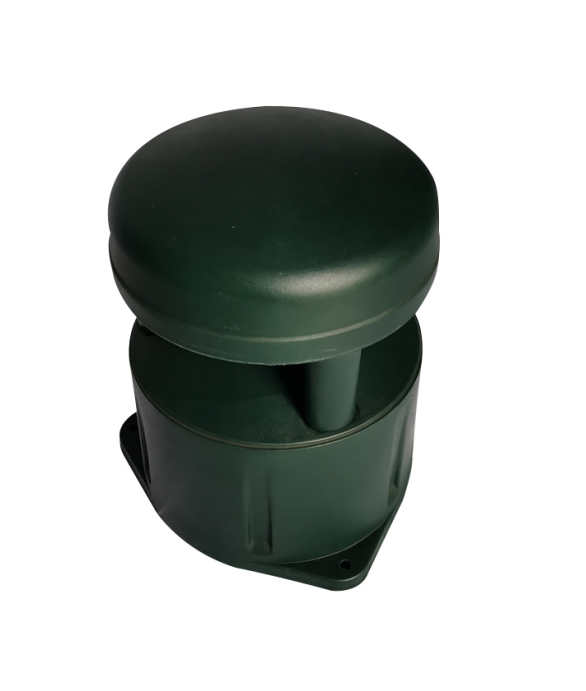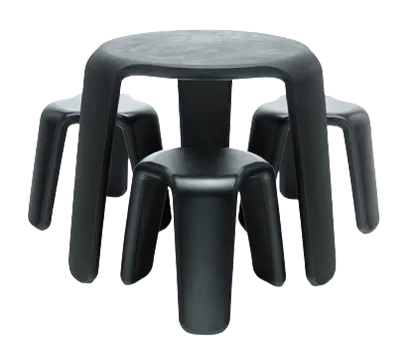
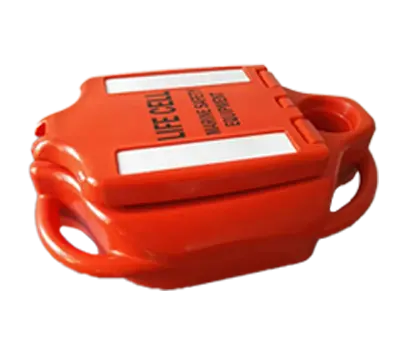

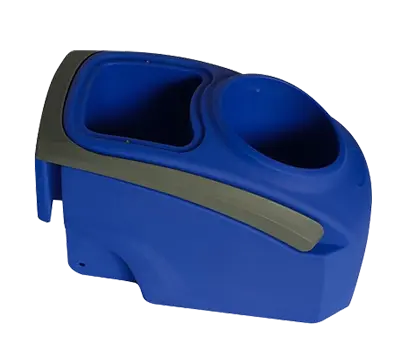
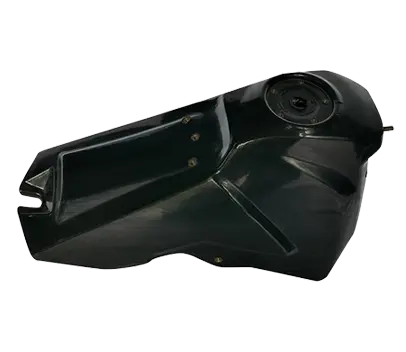
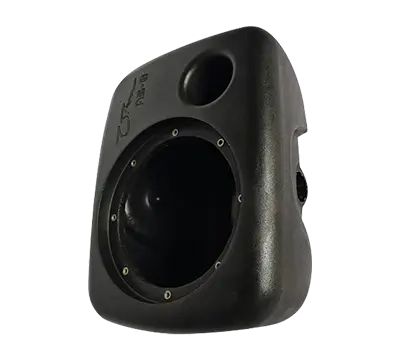
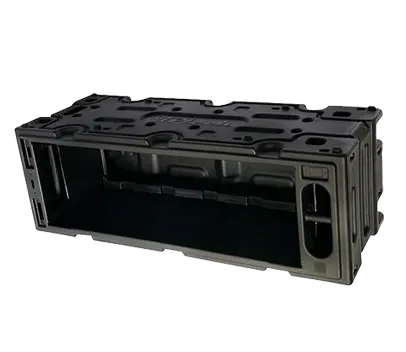
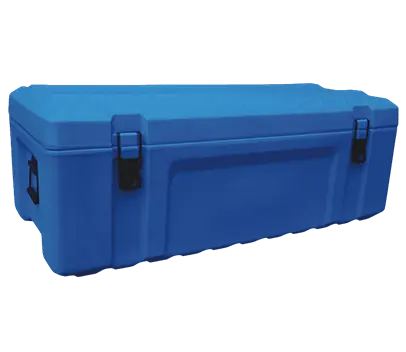
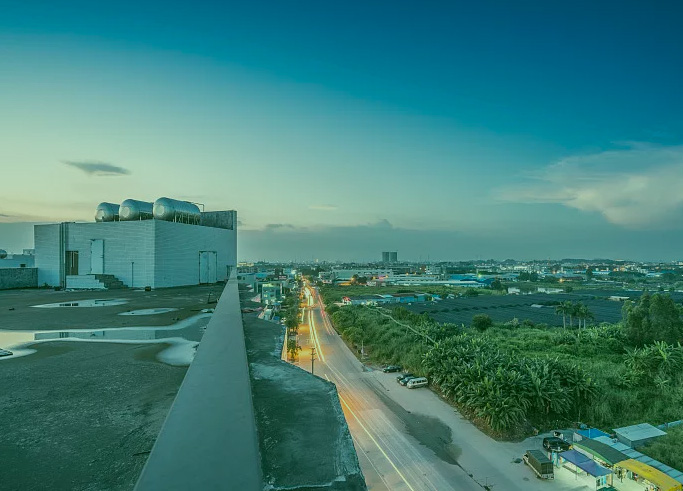
When you consider to custom rotomolding, product design under rotational plastic molding technology shows strong flexibility, such as being suitable for the production of large, complex-shaped hollow items. Injection molding technology cannot handle large hollow objects flexibly.
Rotomolding molds are usually made of aluminum and are less expensive than injection molding steel molds. This makes roto molding more cost-effective when producing small batches. Injection molding molds are usually made of hard steel, and for complex product designs, mold costs can be very high. This can significantly increase the cost per unit of product when producing small batches.
Rotary molding has a longer production cycle, especially the heating and cooling processes that are time-consuming. Injection molding has a short production cycle and is especially suitable for mass production.
Rotational molding mainly uses polyethylene (PE) and polypropylene (PP), such as the well-known polyethylene rotational molding technology. But the material options are not as rich as injection molding. Injection molding can use a variety of plastic materials, including but not limited to ABS, polycarbonate (PC), polyethylene (PE), etc.
Consistent wall thickness, even a bit thicker at the corner, free stress in forming, plus double wall design and kiss-off design, makes the rotomolded product very stable, in high strength, with high impact resistance compared with other processes, so very durable in application with good life time.
As one of the advantages of rotational molding, a low operating press means not much strength request on the tooling but a good heat transfer rate, so cheap metal like sheet metal and CNC aluminum(from extruded block or cast shape) is used a lot, and only one side of the tooling needs to be precisely shaped. All these make the roto-molded plastic products cost the lowest compared with other plastic processes.
Except for the main parting line demolding, sliding blocks can be handled in any direction as needed, which will make shape/feature design quite flexible, and easily adapt innovative/creative shape design. The rotomold tool uses soft metal, easy for surface finish features like texture, logos, symbols, and letters.
As a good replacement for metals, concrete, and fiberglass, also different from other plastic processes, roto-molding has very little material waste and no chemicals or dangerous toxins in the manufacturing process. And also plastic is 100% recyclable, therefore roto molded products reduce the impact on the environment greatly in both manufacturing and applications.
· Focus on high-quality raw material selection: strictly screen and purchase high-quality polymer raw materials to ensure that the roto molded products produced have excellent physical and chemical properties.
· Focus on precision mold design and manufacturing: invest resources in mold design and manufacturing, use advanced CAD/CAM technology and high-precision processing equipment to ensure the accuracy and durability of the mold.
· Focus on strict production process control: formulate detailed production process flow and strictly implement it to ensure that every production link meets the standards, thereby ensuring the consistency and reliability of roto molded products.
· Focus on comprehensive quality inspection and control: equipped with professional quality inspection equipment and team, each batch of products is comprehensively inspected, including size, strength, durability and other aspects, to ensure that roto moulding products meet customer requirements and industry standards.
· Focus on continuous technological innovation and improvement: continue to pay attention to the development trend of rotational molding technology, actively carry out technological innovation and process improvement, and continuously improve the quality and production efficiency of roto molded parts.
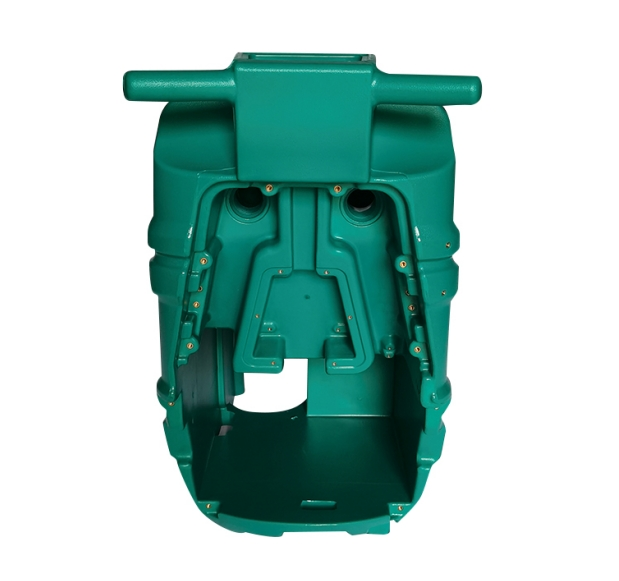
Standardized raw material procurement process: Xiesu rotomolding factory will formulate strict raw material procurement standards to ensure that all purchased polymer raw materials meet industry standards and quality requirements, and ensure the stability and consistency of rotomolded products from the source.
Standardized mold design and manufacturing: We will adopt unified design specifications and manufacturing standards, use advanced CAD/CAM technology and high-precision processing equipment to ensure the consistency and interchangeability of molds, improve production efficiency and the quality of roto molded products.
Standardized production process: Our factory will formulate detailed production process and operating procedures to ensure that every production link is strictly implemented in accordance with the standards, thereby ensuring the consistency and reliability of roto moulding products.
Standardized quality inspection and control: A complete quality inspection system, equipped with professional inspection equipment and teams, conducts standardized inspections on each batch of products, including size, strength, durability, etc., to ensure that products made by rotational moulding meet customer requirements and industry standards.
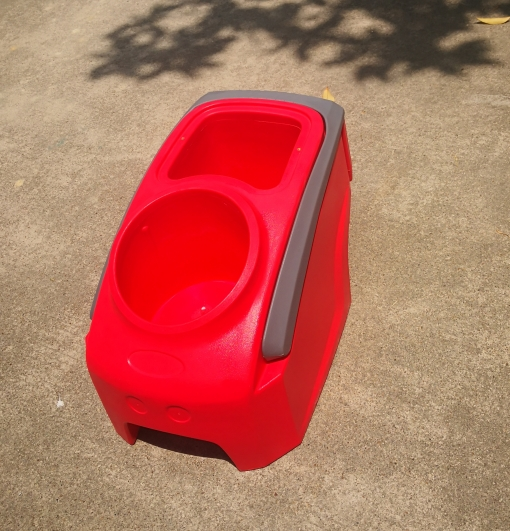
Superior Durability
Xiesu's rotomolded fuel tanks are engineered to withstand the harshest conditions, making them ideal for both automotive and motorcycle applications. The rotational molding process ensures that each tank is built with uniform wall thickness, providing exceptional strength and resistance to impact and stress.
Customizable Designs
Our advanced rotational molding technology allows for highly customizable designs to meet specific industry requirements. Whether you need a unique shape, size, or additional features like integrated mounting points, Xiesu can deliver rotomolded parts tailored to your exact specifications.
Environmental Sustainability
Xiesu rotomolding factory is committed to promoting environmental sustainability through our manufacturing processes. Our roto molded products are produced with minimal waste and are fully recyclable, making them an eco-friendly choice for the auto and motorcycle industry.
